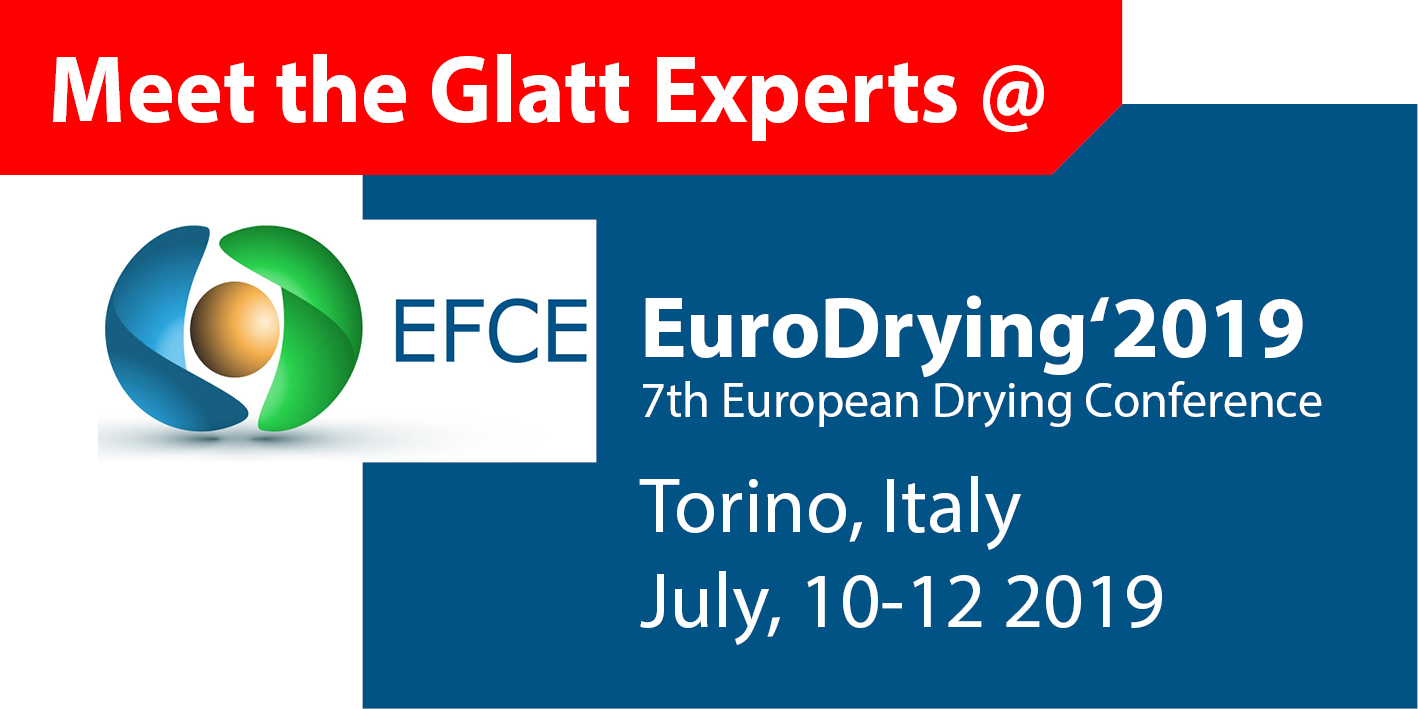
EuroDrying’2019
7th European Drying Conference
July, 10-12 2019
Torino, Italy
At the 7th European Drying Conference Dr. Michael Jacob, Head of Process Engineering, Glatt Process Technology Food, Feed & Fine Chemicals, will give a lecture about “Process analytical technologies for inline control of fluidized bed agglomeration”.
Fluidized bed spray agglomeration makes products easier and more safe to handle, better to dose, better in homogeneity. An automatic control system for fluidized bed granulation requires research into a complex and validated process and product model. To link input data with product parameters, the concept of artificial neural networks is used. The paper shows actual status of research activities at Glatt using a case study of agglomeration of materials to be further processed by tableting.
1. Introduction
The industrial-scale production of innovative products requires state-of-the-art technologies. Fluidized bed processes offer almost unlimited possibilities in terms of optimized particle design and the functionalization of products. Using fluidized bed agglomeration technology, stability, functionality and process ability can be significant improved. Main fields of applications are the food, feed and pharmaceutical industry as well as fine chemicals, where high performance products are needed.
To ensure optimal processes and reproducible product properties fluidized bed plants have to have powerful integrated control strategies.
2. Material and method
Artificial neural networks can be used to correlate input data (e.g., material properties, quantities, temperatures, pressures, …) with output data (e.g., bulk density, composition, homogeneity, morphology, particle size, humidity, etc.).
Any fluidized bed process can be characterized by process conditions of granulation itself and material properties of raw materials and final granules. By changing processing parameters for given technical configurations of fluidized bed systems, final properties of granules as well as their behaviour in later application can be adjusted properly.
Innovative measuring systems have to be integrated into the granulation system and their output can be usable for the independent product property-based control of the granulation conditions.
It´s recommended to study agglomeration in detail in lab-scale before industrial usage. At small scale very good results are achievable by means of well-prepared tests. Here the approach of Design of Experiments (DoE) was used get better understanding of parameter-property-relations and to evaluate optimal control strategies regarding sensitivity and robustness.
In the case study a laboratory scale unit (ProCell Labsystem/Glatt Germany) was used for experimental work. All relevant process and product data were electronically collected and processed using artificial neural network to derive a validated process model.
3. Results and discussion
In case study, DoE and process modelling were applied for detailed evaluation of spray agglomeration process itself as well as for linking properties of tablets with it.
Finally, a process model based in artificial neural networks (aNN) could be developed. Based on it prediction and automatic control of particle growth kinetics is possible.


